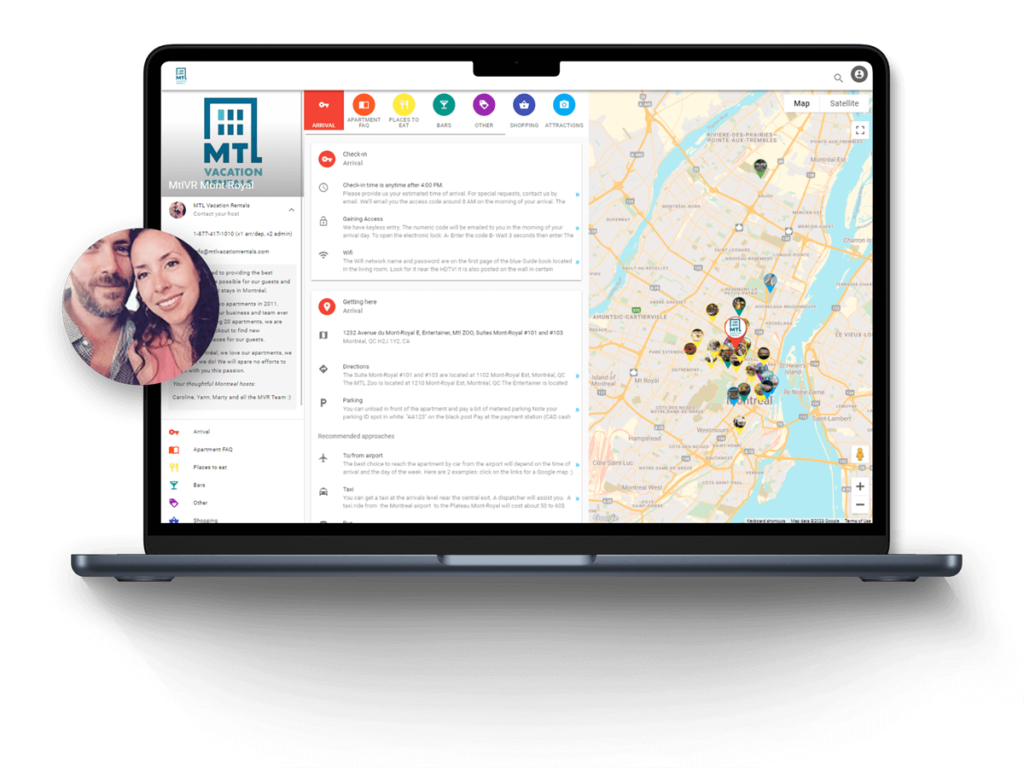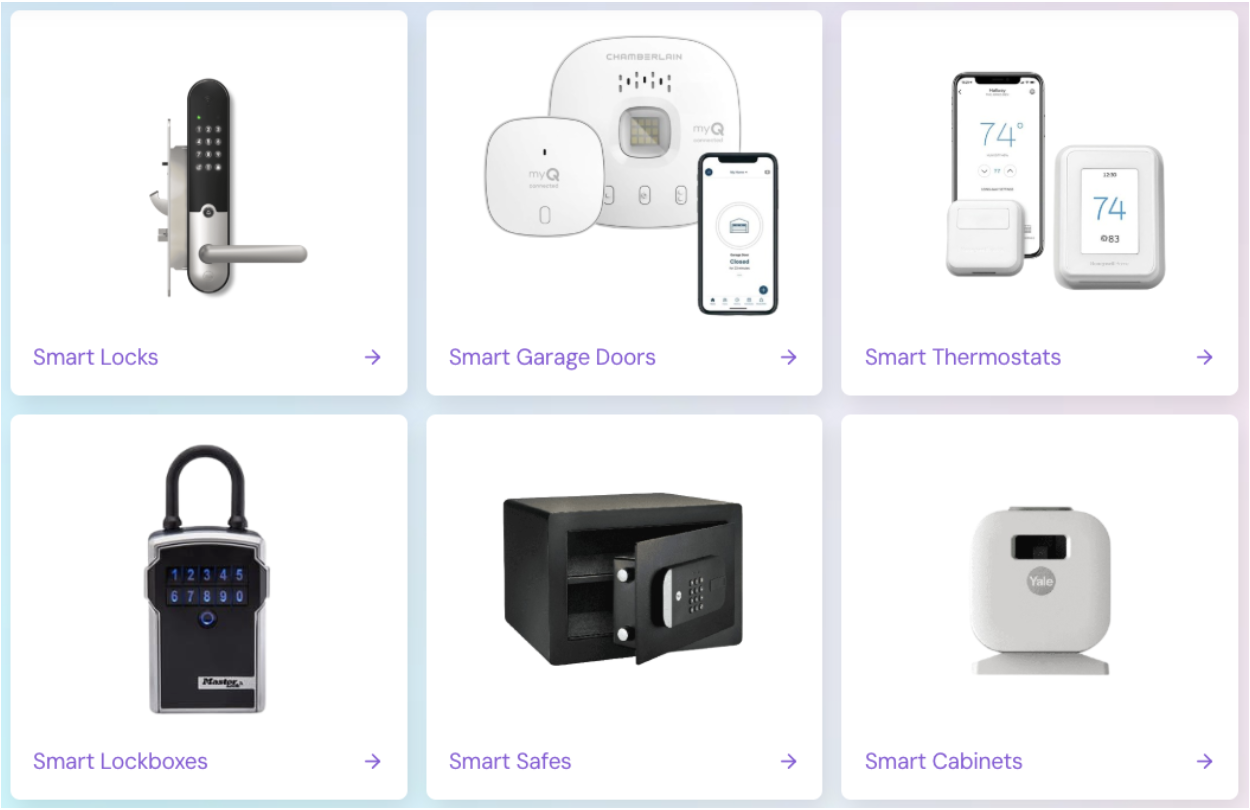You’ve put a lot of effort into making your Airbnb welcoming to guests: bought new furniture, installed hardwood flooring, and even invested in a hot tub.
Now every time you take a booking, there’s that lingering worry. “What if my guests damage or break something?”
Airbnb offers you protection in the form of its AirCover for Hosts. This program reimburses you for certain types of damage to your Airbnb property and belongings if guests refuse to take responsibility. While you still need an insurance policy in most cases, AirCover can bring you a little extra peace of mind.
Interested in how AirCover for Hosts works? Let’s explore what Airbnb’s damage policy covers, your responsibilities as the host, and some tips on how to keep your vacation rentals in good shape.
Airbnb damage policy: How does it work?
AirCover for Hosts is a free program included with every Airbnb booking. It offers up to $3 million in coverage for damages a guest causes during their stay if they refuse to reimburse you.
There’s no need to enrol. Airbnb automatically adds you to the AirCover for Hosts program the moment you accept your first booking on the platform.
Airbnb also manages the entire process. Instead of having hosts collect a security deposit, they place a hold against each guest’s payment method. This enables Airbnb to charge them if they refuse to reimburse you for any damages they’ve caused.
The catch is that Airbnb hosts have to request a reimbursement. This involves making a claim through the platform and providing proof of the damage to your property or belongings.
Guests have 24 hours to respond. If they don’t pay the amount in full, Airbnb steps in to assess your claim and recover the money. You should receive the payment within a few weeks, provided the platform approves your request.
Why is Airbnb’s damage protection policy important?
AirCover for Hosts is important as it’s the only way to claim back damages. You’re not allowed to collect a security deposit before a guest’s stay or directly pursue them for payment. This makes understanding how AirCover works and following Airbnb’s rules essential for success on the platform.
The Airbnb policy on damages also has several advantages over the traditional method:
- Up to $3 million in coverage
- Less time spent on disputes
- No need to engage with guests directly
- Clear guidelines on what counts as damages
- Coverage for business downtime
- Access to Airbnb’s 24/7 support
- No additional insurance cost
Hassan Morcel, founder of Keys Please Holidays Homes, has discovered AirCover works. “In one case, a guest denied scratching a marble table,” he says, “I calmly shared before-and-after photos and a repair quote through Airbnb’s messaging system. Once they saw the evidence, they agreed to settle — no drama, no escalation.”
What damages does Airbnb cover?
To avoid confusion, there’s a detailed Airbnb damage policy for guests that explains exactly what AirCover does and does not apply to.
Does cover:
- Damage to your property or belongings caused by guests or their invitees
- Damage guests cause to parked vehicles
- Extra cleaning fees from stains left by guests, their invitees, or pets
- Higher than expected cleaning fees due to unapproved guests
- Services to remove smoke odor
- Income loss from confirmed Airbnb bookings due to damage
- Payments for emergency Airbnb accommodation for the next guest due to damage
Doesn’t cover:
- Damage to your property or belongings from normal wear and tear
- Damage from acts of nature like hurricanes or flooding
- Bodily injury or illness
- Damage to guests’ belongings
- Cleaning costs associated with normal check-out tasks
How do you make an Airbnb damage claim?
There’s a simple three-step claims process to report damage and seek reimbursement for Airbnb damages:
Step 1: Document the damage
Take clear photos or videos of the damage with timestamps if possible. You must also include repair and cleaning estimates or receipts so Airbnb can verify the costs.
Morcel says he streamlines the process by keeping a claims kit. “Photos, receipts, and a short description for each item in the unit. That way, if something breaks, I’m not scrambling to prove its value.”
Step 2: Report the damage promptly
Submit your claim through Airbnb’s Resolution Center within 14 days of the Airbnb stay when the property damage happened. If you plan to involve support, you must contact them within 30 days.
Step 3: Await the guest’s response
The guest has 24 hours to respond to your request. If they either fail to answer or pay the damages in full, you can submit a reimbursement request. Airbnb will handle the matter from here.
7 smart ways to protect your Airbnb against damages
While damage is inevitable, there are strategies you can use to minimize the risk and encourage guests to cooperate when it happens.
1. Explain to Airbnb guests how to care for the property
Some damage happens because guests don’t understand how to care for your property and belongings. What seems intuitive to you may confuse them. For example, tourists from cold countries may not be familiar with operating thermostats or air conditioning.
Provide house rules with clear instructions for every appliance in your rental. A digital guidebook is the best way to handle this task because you can send a large volume of information in a text message link. Solutions like Hostfully also give you the option to add images and videos to act as a tutorial and integrate with an AI concierge to answer questions.

2. Encourage guests to be open
Guests are more likely to report accidental damage if they have clear communication channels and feel like you’re approachable. The challenge is that you might not have the capacity to send every visitor to every property you own a personalized message.
Instead, use a guest messaging automation tool like Hostfully to create message templates and automatically send them. Pre-arrival messages can allow you to create a friendly tone. After a few days into the booking when the damage may already have happened, a mid-stay message can prompt guilty visitors to get in touch.
What is the best tone to set? Nate Ryan, owner of The Skyline Retreat, recommends making yourselves sound as human as possible. “The more you treat your Airbnb like a business,” he says, “The more guests start to treat it like a hotel room and become careless with damage. I’ve been on both ends where comms is run by a big team and then running it personally, and 100% of the time, when guests know they are talking with the homeowner who put love into the property, they always treat it with lots of respect.”
3. Add a checklist to your turnover process
Cleaning crews might accidentally overlook issues with your property. This means you can’t respond quickly to damages or arrange maintenance before appliances break.
Adding a digital checklist to your turnover process addresses this problem. You can use property care solutions to assign tasks to cleaning staff and provide photos of what rooms and items should look like. If something’s wrong, they can quickly alert you via the app and send you a picture.
As a bonus, this gives you indisputable evidence ready to hand in the event you need to file a claim.
4. Check for pre-existing issues
Despite your best efforts, some damage can remain hidden for weeks. Owner of Detroit Furnished Rentals, Sean Swain, says asking guests if they’ve spotted any issues can prevent you from blaming the wrong people.
“I reach out to guests within two hours of check-in to ask if everything looks good and if they notice anything that needs attention,” he says, “This simple text message has caught 90% of pre-existing issues that guests might otherwise blame on themselves later. For example, when a guest mentioned a small scratch on our hardwood floors that we missed, we thanked them and noted it immediately, which prevented a $300 damage claim later.”
5. Invest in quality features and maintain them
Ryan says what matters is how you set up your rental property. “The more you dummy-proof the house, the less likely things are to break.”
This generally involves the following steps:
- Buying sturdy furniture and appliances: Delicate items like coffee machines and dishwashers will be less likely to break after a little misuse if they’re a quality model.
- Following best practice: Ensure guests and staff can treat property features, furniture, and appliances well. For example, it’s no good providing bicycles for guests to use without pumps as riding on flat tires can quickly lead to damage.
- Maintain the property: In particular, appliances are more likely to perform well over a long period if they receive regular cleaning, repairs, and replacements.
6. Have an insurance policy as backup
AirCover isn’t comprehensive, so having extra vacation rental insurance prepares you for every scenario. Property management systems (PMS) like Hostfully integrate with leading insurance providers. These provide custom plans for homeowners and property managers across various regions and cover accidents as well as damage to items.
In some cases, you may need insurance to comply with short-term rental regulations. You’re responsible for researching your local laws and complying with all the necessary policies to avoid penalties or having your license revoked.
7. Get proactive with guest screening
Not every guest is right for your property. You can use automated checks to identify risky bookings and decline them.
Hostfully’s guest screening integrations work by verifying identities, checking histories, and flagging potential issues. For example, they may automatically decline a booking for a single night over a public holiday, often a sign of an unauthorized party. They also ensure the details of the reservation align with local short-term rental requirements like occupancy limits.
8. Keep an eye on your property from afar
Sometimes disrespectful guests slip through the gaps. They may never have stayed at a property before or avoid triggering your guest screening tools.
PMS like Hostfully provide smart devices and specialized integrations that let you monitor your property and step in before damage happens.
- Smart locks to check property access and eliminate the risk of guests losing keys
- Smart thermostats so you can spot when the air conditioning or heating has been left running too high
- Noise monitors to sense when unauthorized parties are happening
- Smoke detectors to ensure nobody lights cigarettes inside the property

Hostfully: A platform to minimize the risk and impact of guest damages
Damages may be part of managing a short-term rental, but Airbnb has systems in place to protect guests and owners from fraudulent claims, avoid unnecessary conflict, and reach a fair outcome for everyone involved.
While you may appreciate Airbnb’s coverage, you may wish to have more control over damage processes. That’s where Hostfully PMS comes in. Our solution offers you the following features to reduce the risk of damage and minimize the impact when it happens:
- Guest screening integrations to identify high-risk bookings
- Specialized insurance integrations for damages
- A digital guidebook to give detailed instructions on property care
- Messaging automation to encourage guests to notify you about issues
- Smart tech to monitor your property
With Hostfully, the goal stops being about making guests pay for damages. It starts being about reducing the risk to virtually nothing, so you can run your business smoothly.
FAQs:
What’s the difference between Airbnb’s Host Guarantee and Host Damage Protection?
The Host Guarantee was Airbnb’s old program. Airbnb’s Host Damage Protection is the newer version that offers up to $3 million in coverage with clearer terms.
Can I still get a reimbursement from Airbnb if I didn’t collect a damage deposit?
Yes, you can still file a damage claim through Airbnb even without a security deposit, thanks to AirCover. You mustn’t collect a security deposit from guests either inside or outside the Airbnb platform.
How long do I have to report damages on Airbnb?
You must report damages within 14 days of a guest’s checkout and involve Airbnb support within 30 days. After this point, any unreported claims become invalid.
What happens if Airbnb denies my damage claim?
If Airbnb denies your claim, you won’t be reimbursed. You can either appeal their decision and fall back on short-term rental insurance, assuming you have a policy.


